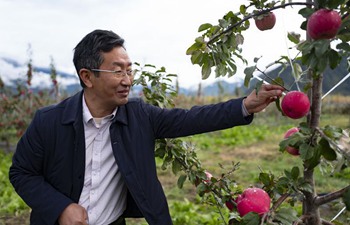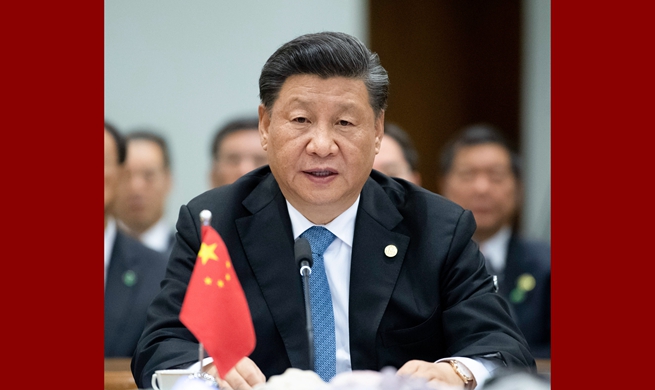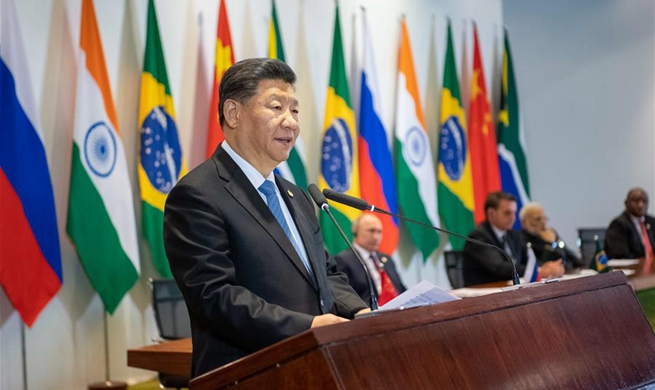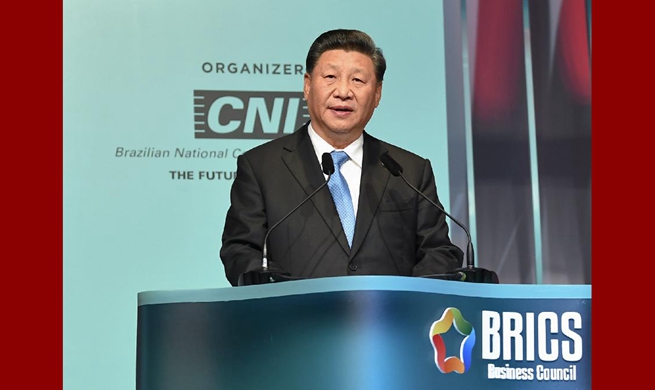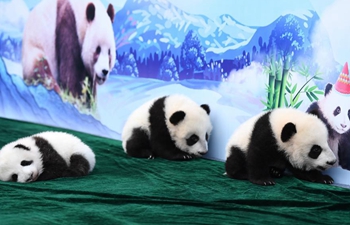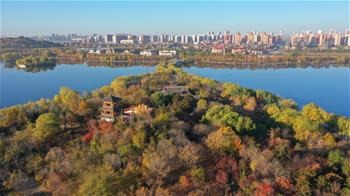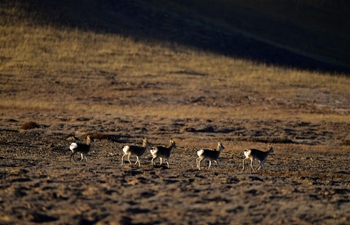CHENGDU, Nov. 17 (Xinhua) -- For hundreds of years, the hada scarf has been an essential ceremonial fabric in the daily life of Tibetans. But where did they originate from?
Thousands of miles away from the Tibetan plateau, the snow-white satin is woven behind the walls of brick and wood dwellings in a small town called Ranyi in southwest China's Sichuan Province.
For nearly two centuries, hada scarves have been produced there before making their pilgrimage to the Potala Palace, Tibetan Buddhist monasteries and families across the vast area of western China.
It is estimated that more than 100 million hada scarves are produced every year in Ranyi. The number of permanent residents there is no more than 30,000.
As far back as the 11th century, the tea-for-horse trade between Han and Tibetan people was established. The famous Tea Horse Road linking Sichuan Basin with the Tibetan plateau went by Ranyi.
Tea, hada, silk and grain produced in the Sichuan Basin were transported to Tibet in exchange of medicinal materials, gold, hides and wool.
Some people believe that the name of hada came from a Mongolian word meaning "scarf." Italian businessman Marco Polo mentioned in his book that emperors of the Yuan Dynasty (1271-1368) exchanged white items with his people to celebrate the new year, which some scholars believed to be hada scarves.
While some others think that hada means "to decorate with white items" in the Tibetan language, which evolved from the Tibetan tradition of decorating new houses with white woolen threads.
Although the origins of hada vary, Ranyi people know for sure when their ancestors began the hada business.
Hu Pengfei, 36, remembered that his grandfather started to handmake hada scarves in the 1940s. More than 20 steps -- from mulberry planting, silkworm rearing to textile, starching and packing -- must be taken to make hada.
Production was low, and his grandfather was only able to sell hada "once every one to two years." And every time he did, he hired a dozen porters to carry the products to the neighboring cities of Ya'an and Kangding.
In the 1990s, when Hu's father took over the hada business, laborers were replaced by machines and post offices took the places of porters.
The narrow and ancient Tea Horse Road was gradually abandoned and buried by weeds.
When Hu himself took over the family business, a newly-built highway has brought Sichuan and Tibet even closer. Tunnels and bridges have replaced steep and dangerous mountain roads.
A round trip from Ranyi to Kangding used to take up to one month for Hu's grandfather, while it only takes a day for Hu to finish the trip today.
"Overseas orders make up about one-fifth of our business," Hu said. His hada scarves have been sold in India, Nepal, Malaysia and Singapore.
As sales of hada soared, consumers' demand for its quality and variety also increased.
"High-end hada made of natural silk and wool used to account for no more than 10 percent of our production. Now it's 30 to 40 percent," said Zhi Xuewen, general manager of a hada company in Ranyi.
To attract young consumers, hada producers have been continuously improving the process and user experience as well. Previously, people had to cut hada into appropriate pieces as they were only sold in big rolls. Nowadays, Zhi cuts and packages them.
Besides traditional patterns such as the Eight Auspicious Symbols of Buddhism or blessing words written in Tibetan characters, hada scarves with customized patterns and specific words, even in English, for various occasions and purposes, have become popular.
Like Chinese tea, hada scarves will also continue to weave new chapters for cultural exchange across China and the world.




